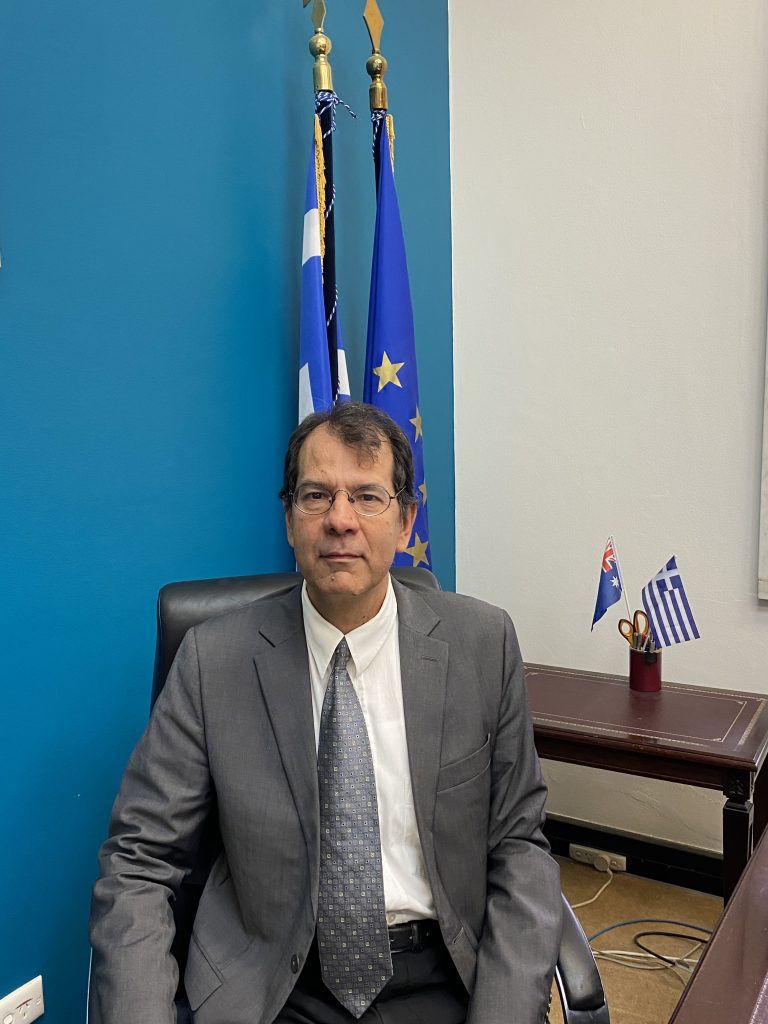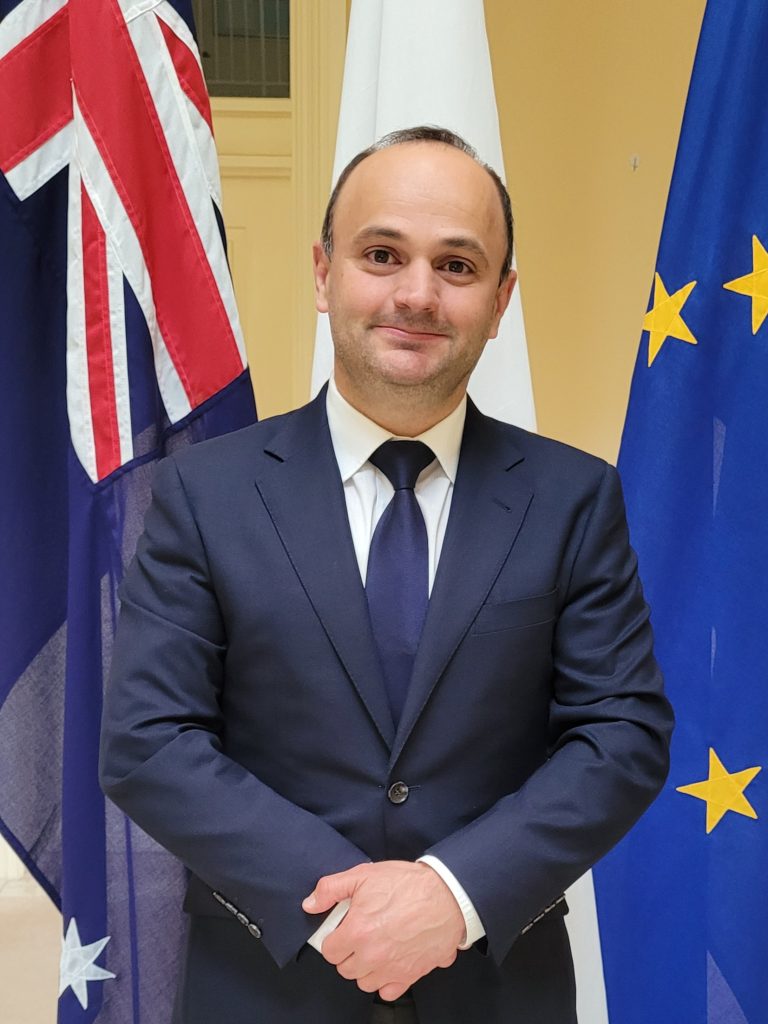The Ambassador of Greece in Australia, George Papacostas, and the High Commissioner of the Republic of Cyprus in Australia, Antonis Sammoutis, have issued messages to Australia’s Greek diaspora ahead of Greek Independence Day on March 25.
Message by the Ambassador of Greece in Australia, George Papacostas:

The celebration of the Greek Revolution of 1821 brings to our memory the unparalleled heroism of our ancestors who did not hesitate to sacrifice their lives to ensure the freedom of our homeland.
Their selfless love for the country, their unquenchable desire for the rebirth of our nation, the preservation of Greek history, tradition and culture, constitute flagship values that exemplify the younger generations who follow the same path of promoting national consciousness, identity and heritage, wherever they are around the world.
The dynamic and timelessness of Hellenism, from antiquity to the present day, are reflected in the best and most eloquent way, in you, dear compatriots, who keep the flame of 1821 unquenchable and are proud of your Greek heritage.
Through your voice and your example, you contribute to the progress of multicultural Australian society and contribute to the promotion and further development of excellent bilateral relations.
Thanks to you, Greece today is democratic, strong, prosperous, peaceful, a reliable member of the international community and a factor of stability, development and trust in international relations.
Xronia Polla! Long Live the Greek Nation, Long Live Greece!
Message by the High Commissioner of Cyprus in Australia, Antonis Sammoutis:

With feelings of deep emotion and pride, I celebrate this year for the first time the anniversary of our national day with a very special part of Hellenism, the Hellenism of Australia.
The Greek Revolution began before March 25, 1821. The Greek fighters though, could not help but connect the great uprising with the Feast of the Annunciation. After all, it was Christian faith that kept our national identity pure for centuries, as all the places (with the exception of the Ionian Islands), where Hellenism lived and flourished, gradually came under the control of the Ottomans.
Almost 400 years later, the Greeks became aware that the freedom of their country will come only if they themselves fight with self-sacrifice and self-denial, sacrificing the most precious things they had – their own lives. Encouraged by the spirit of the Enlightenment which spread throughout Europe, and secretly organised by the Friendly Society, they achieved in just a few months what previously would have been unthinkable – to defeat the armies of an empire and regain a state entity of their own. To the first small Greek state were gradually added most of the places where the Greeks predominated in population, and thus Greece was reborn in its historic cradle and took her rightful place among the free nations.
Cyprus joined as much as it could in this great effort. There were hundreds of Cypriots – members of the Society – with the first being the National Martyr Archbishop Kyprianos and others were volunteers who left the island to fight in the Revolution. The Ottoman administration of the island, in an effort to keep the revolutionary flame away from Megalonisos, reinforced its troops and proceeded to the preventive extermination of clergy and property on July 9, 1821. Dozens of villages were erased from the map and hundreds of Cypriots, first of all the Archbishop and the Metropolitans of Paphos, Kitio and Kyrenia met a tragic death at the hands of the Ottomans. Greece never forgot Cyprus and despite the distance, included it with a memorandum of the first Governor of Greece, Ioannis Kapodistrias (whose mother had ancestors who came from Cyprus), in the territories it claimed.
Celebrating today this glorious anniversary in all the countries of the world where Greeks live, they cannot help but reflect on the deeper meaning of their supreme fight for freedom as our national poet has captured in the Anthem. Greeks and freedom are synonymous words. Thus, every country where freedom and democracy have deep roots becomes a homeland for the Greeks and as a homeland they will honour and defend it with their actions.

